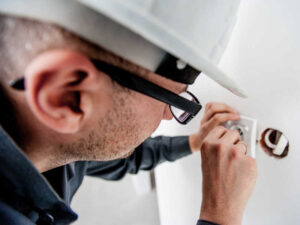Questions to Ask Before Hiring a Home Repair Contractor

Hiring the right home repair contractor is crucial to ensuring your project runs smoothly and delivers quality results. The last thing you want is a contractor who overpromises, underdelivers, or leaves you with more problems than solutions. By asking the right questions upfront, you can avoid costly mistakes and find someone who truly fits your needs. Here’s your ultimate checklist to make an informed choice.
I. Licensing, Certification, and Insurance: The Basics
Why it matters: Licensing, certification, and insurance demonstrate a contractor’s professionalism and credibility. Without them, you could be at risk financially and legally.
- Licensing: Ask if their license is current and covers your specific project type, such as electrical or plumbing repairs.
- Certification: Check for specialized training or certifications that apply to your project. For instance, does the contractor have energy-efficient installation training or roof repair expertise?
- Insurance: Ensure they have liability and workers’ compensation insurance. This protects you from being held responsible for accidents or damages during the project.
Pro tip: A licensed and insured contractor is like a seatbelt—you might not notice it until you need it, but it’s essential!
II. Experience and Track Record: Don’t Take Their Word for It
Why it matters: A contractor’s experience and reputation speak volumes about their reliability and skill.
- Similar projects: Have they handled repairs like yours before? If you’re fixing your roof, their track record with kitchens won’t help much.
- References: Ask for references and check reviews online. Go beyond Google—talk to neighbors or local community groups.
- Red flags: Investigate any complaints filed against them. A quick search can save you a big headache.
Remember, hiring someone without proven experience is like buying a used car without checking its history. Don’t skip this step!
III. Payment Terms: Don’t Fall Prey to Upfront Demands
Why it matters: Clear payment terms protect you from financial risks and ensure both parties are on the same page.
- Upfront payments: Avoid contractors who ask for full payment before starting. A reasonable deposit is normal, but don’t hand over the full amount upfront.
- Material costs: Be cautious if they demand payment for materials before purchasing them.
- Written estimate: Always get a detailed, written estimate that breaks down costs and payment terms.
If a contractor pressures you to pay everything upfront, they might as well be selling timeshares on the side. Walk away.
IV. Communication Is Key: Can They Explain It to You Clearly?
Why it matters: A good contractor keeps you in the loop and explains the process in a way you can understand.
- Progress updates: How will they update you on the project’s status?
- Technical details: Will they explain what they’re doing and why? Clear explanations show they understand their work.
- Responsiveness: Are they easy to reach if you have questions or concerns?
If they talk in circles or dodge your questions, they might have something to hide. Choose someone who communicates like a pro.
V. Materials and Supplies: What’s the Quality?
Why it matters: The quality of materials affects the durability and success of your project.
- Standards: Are the materials high-quality and industry-approved?
- Inspection: Can you see and approve the materials before they’re installed?
- Warranty: Do the materials come with warranties? If so, what do they cover?
Cheap materials might save money upfront but can lead to costly repairs later. Quality matters!
VI. Warranty and Guarantee: Protecting Your Investment
Why it matters: A warranty or guarantee ensures you won’t be left in the lurch if something goes wrong after the project is finished.
- Coverage: What does the warranty include—materials, labor, or both?
- Exclusions: Are there any limitations or exclusions you should know about?
- Length: How long is the warranty valid?
Don’t shy away from asking questions. A confident contractor will stand behind their work.
VII. Scheduling and Timing: Can They Meet Your Deadline?
Why it matters: Delays can disrupt your life and inflate costs.
- Schedule flexibility: Will they work around your availability?
- Timeline: How long will the project take? Beware of contractors promising unrealistically quick results.
- Deadlines: Are there any critical deadlines, and can they meet them?
It’s better to know upfront if their timing won’t work for you than to find out halfway through the project.
VIII. Additional Costs and Fees: What Else Will You Pay For?
Why it matters: Surprises are great for birthdays, not for home repair bills.
- Unexpected repairs: Will they charge extra for issues they discover mid-project?
- Permits: Are permits and inspections included in the estimate, or are they extra?
- Exclusions: Clarify what’s not covered in their pricing.
Transparency is key. If they’re vague about costs, find someone who isn’t.
IX. Conclusion: Prepare Your Questions, Not Just Your Wallet
By asking these essential questions, you’ll be more prepared to choose a contractor who fits your needs and budget. Remember, a reliable contractor isn’t just skilled—they’re also clear, communicative, and upfront about their work. Take the time to vet your options, and you’ll save yourself stress, money, and sleepless nights.
Extra tips:
- Ask about their policy on emergency repairs or after-hours calls.
- Request references and, if possible, photos of past projects.
- Look for affiliations or certifications from reputable organizations, like the National Association of Home Builders.
With this checklist in hand, you’re ready to tackle your next home repair project with confidence!







